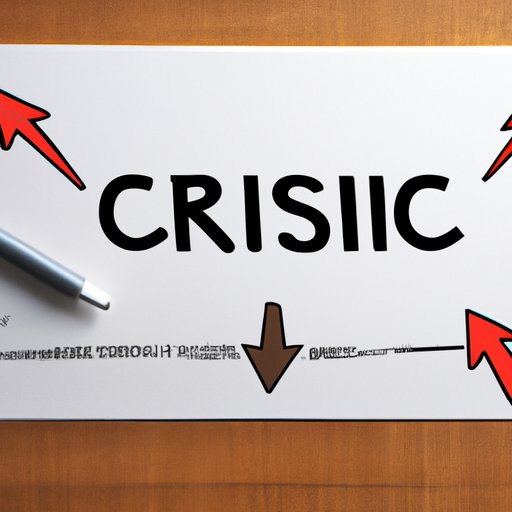
Introduction
Crisis management is a crucial aspect of any business strategy. This practice is geared towards preparing for, managing, and recovering from unforeseen events that can negatively impact a company. In this article, we’ll explore the basics of effective crisis management, the benefits that come with it, and what businesses can do to create an effective crisis management plan.
The Importance of Crisis Management: Understanding the Fundamentals
Crisis can hit businesses at any time, and if they are not prepared to handle them, the consequences could be severe. In fact, many businesses have suffered significant setbacks following a poorly managed crisis, including loss of revenue, negative brand image, and even going bankrupt.
What is Crisis Management and Why it’s Essential for Businesses
Crisis management refers to a set of processes and procedures that businesses use to prepare for, respond to, and recover from a crisis effectively. An effective crisis management strategy will help businesses to minimize the impact of a crisis and recover quickly. This is done by providing a roadmap for immediate actions to take in a crisis situation, preventing it from getting worse.
Crisis Management Strategies: The Dos and Don’ts of Handling a Crisis
Effective crisis management focuses on swift, thoughtful, and strategic response to a crisis. Dos of crisis management include assessing the situation, appointing a crisis management team, and keeping all stakeholders informed. Don’ts include denying, blaming, or delaying response or ignoring public input. With a sound crisis management strategy in place, businesses can communicate with key stakeholders, mitigate damages effectively, and work to repair its reputation.
Exploring Examples of Successful Crisis Management in Business
Several excellent examples of businesses that have successfully handled a crisis demonstrate the importance of a well-tailored crisis management plan. For instance, Johnson & Johnson recalled nearly 31 million bottles of Tylenol following reports of intentional tampering with the capsules. The company did not leave the crisis with just a recall but instead went beyond the lines to introduce safer packaging. All of this saved the company’s brand and reputation.
Planning for the unknown: How to Develop a Crisis Management Plan
To develop a crisis management plan, businesses need to analyze potential risks and prioritize them accordingly. A crisis team, with designated roles and responsibilities, should be set up. The plan should be in writing, communicated to the right stakeholders, and periodically updated. It should also outline communication channels for quick and effective responses.
From Public Relations to Public Perception: The Role of Crisis Management in Image Repair
Effective crisis management is essential for image repair; if not handled properly, crises can cause significant brand damage. Businesses must respond promptly and transparently, taking responsibility for any crisis caused by their products or services. They also have to investigate and identify the root cause of the crisis and make appropriate changes accordingly. With efficient crisis management, businesses can minimize damage to their brand and public perception.
10 Essential Crisis Management Skills Every Business Leader Should Possess
Business leaders must have several essential crisis management skills, including critical thinking, effective communication, and decision-making. They also have to be calm under pressure, adaptable, and have problem-solving skills, both critical and creative. Being emotionally intelligent is another invaluable skill that can help leaders navigate the challenges of crisis management. Finally, being proactive, having a crisis management plan in place, and running drills make all the difference.
Conclusion
The importance of crisis management cannot be overstated. In today’s business world, crisis events are frequent and can impact any business at any time. An effective crisis management strategy enables businesses to prepare for, manage, and recover quickly from these crises. By following the best practices discussed in this article, businesses can minimize damage and emerge stronger.





